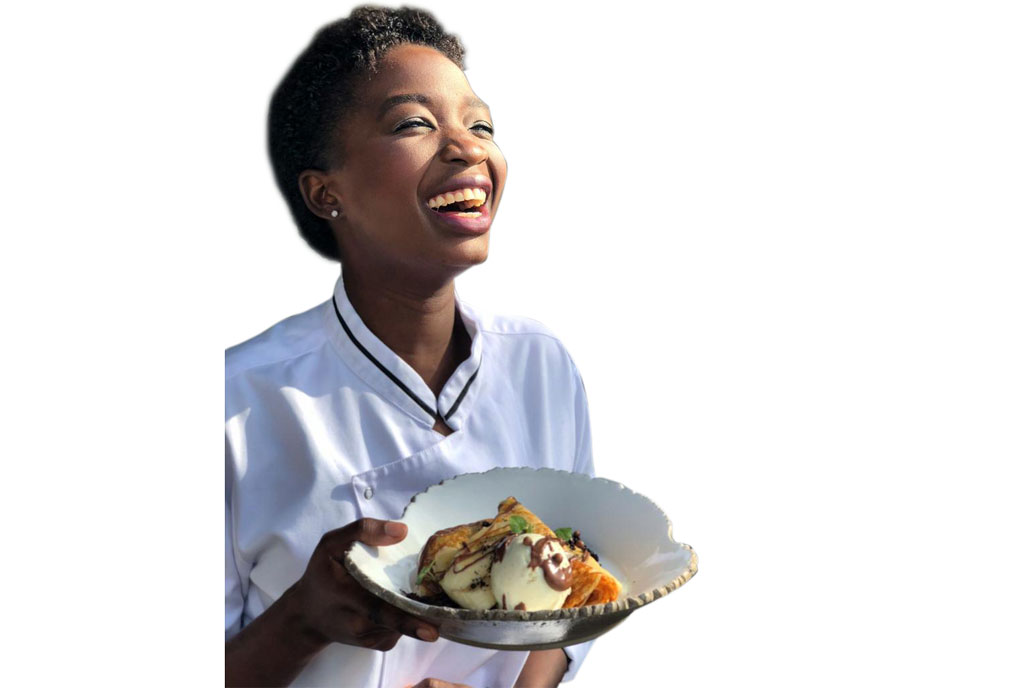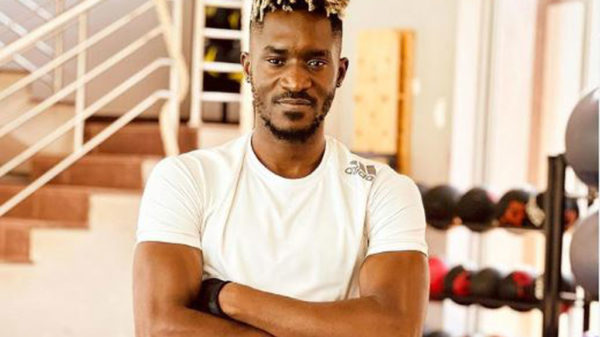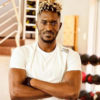Cooking with Kelz: Sarah Akelly is a chef who has worked mostly in the Middle East and Asia and is passionate about food. She recently wrote a cookbook. Grace Kenganzi caught up with her.

Sarah Akello says despite having the passion, she almost gave up on her chef journey. Courtesy photo
1. Today, many young people struggle with finding themselves. Tell us about your journey to finding yourself and deciding, I’m going to be a chef.
I really wish it was a nice journey where I’d say ‘oh I just woke up and I dreamt it’. After completing a degree in social work, I started a business with someone, making uniforms. The business was a good idea but my heart was not in it and it soon went left. Then I started doing ACCA and it was hard. After failing one of the papers twice, I gave up. One day I was watching a cooking show with my eldest sister then it hit me – I was already cooking for free at home since I was 13. I talked to my father about it. He wanted to send me for a master’s programme in England but made it clear that if I chose this path that was it. He did not want to hear my master’s, Law school or MBA stories again. It felt right because I loved it and there would be no chance of being compared to any of my siblings who were all doing well in engineering and law.
I joined culinary school in International Culinary Centre for Arts, Dubai. I started working and I hated it so much that I spent more than 15,000 dirhams (about Shs15.4m) trying another course. But I had to remember why I had started. I had to find rock bottom. I had to have no option for me to realise that this was an option. The assumption is that when you have a passion, it will be easy. Just because you love something does not mean you will always enjoy it. You will reach points where you will wonder if it is worth it. I had to keep my eyes focused on what I wanted. I saw myself with a book, a TV show, training people, having fine dining events.
2. You had a champion in your father, how would you encourage someone who does not have such a champion in their lives?
Even when you have people in your life, they may not understand what you want to do. My father, for instance, would never have chosen this for me and I do not think he even completely understands what I do. So it has to start with you. It takes a lot of discipline. Ask yourself if it is something you would be able to make a livelihood from. Is it something you are willing to fight for if it doesn’t go as smoothly as you like? It is easier to make Shs1m without stressing than to step out on your own. Surround yourself with people that are doing what you are doing so that they can encourage you. If you are an artist, surround yourself with artists, visit their websites, and follow them on Instagram. Make connections along the way. Also, celebrate every small milestone because this will keep you re-energised. Soon, you will find yourself celebrating bigger, more rewarding things.
3. Speaking of bigger things, you wrote a book. Tell us about that.
I have always wanted to blend two things I love — writing and cooking. The book is about cooking. Having worked out of Uganda, I noticed how different the food industry is. In Uganda, the only things that really sell are restaurants with chips and chicken, which is casual dining. I wanted to find a way to incorporate comfort food which is not chips and chicken so that people can develop their palates and appreciate fine dining foods. It is something you can use at home, it is easy to follow that your househelp can use it if they can read English. It has dishes that you would usually only find on the menu of uptown restaurants. Dishes such as spaghetti with pesto, tiramisu, things you have probably never thought you can make yourself.
4. How did you put it all together?
My first week in culinary school, they asked us what we wanted to do, and I said, “I want to travel the world, write a book and hopefully have a show.” That was seven years ago. I started working on it eight months ago. I was working in Bali, Hong Kong, Shanghai, China and used any free time in between to work on it. I had the draft but knew that ingredients are different and may not be as accessible in Uganda, so I came home to complete it. My goal was to make sure that for everything in the book, I could go to a supermarket or market and find it. It took me three months to ensure this. Some of the recipes did not make it because I could not find the ingredients. Even if the quality of, say the cheese and creams was sometimes not as I would like, I made sure that I use ingredients that still taste good. I did the cooking. I called family and friends for Sunday lunches, where they tasted the food and gave their opinions. I got a professional photographer. It was trial and error in some places because some days you work with people who do not see your vision and so I had to be firm about what I wanted. I had a good editor who encouraged me to bring my voice to the book.
5. When most people think of writing a book, the question of money pops up. How did you pay for the project?
This started out as a personal project because everyone called it a waste of time, telling me Ugandans do not read. So I was doing it for myself and put money aside for it, not thinking it would be a big thing. However, I have spent five times more than what I had intended. I realised that I wanted it to be good quality, so I ate into my savings and I put off vacations. So I paid for everything, which is good in a way because if it does well, it will pay back for me and if does not do well, I do not owe anyone anything.
Who is Akelly?
My name is Sarah Akello. I use Akelly because that is the name people have known me by since school days, not because I am not proud of where I am from as some people assume.
I work in Bali but I have been on leave to work on my book, Always Extra for Love: Cooking with Kelz. I need to complete some things regarding this book project before I can commit to going back. For now, I am thinking less about employment and more about building my brand as a chef.
Akelly is single and “ready for marriage”, so guys shoot your shot.




























































